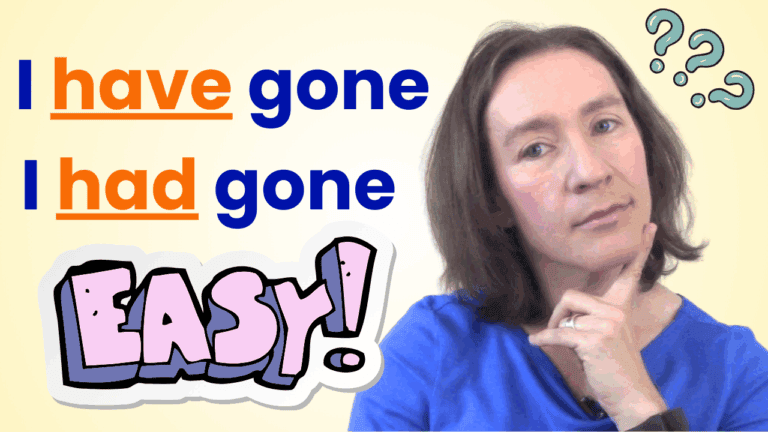
Learn about “gonna” and when you CAN and CAN’T use it!
Going to –> Gonna in fast spoken English
When we’re speaking fast and informally, native English speakers often pronounce “going to” like “gonna.” For example:
- I’m gonna order a pizza.
= I’m going to order a pizza. - We’re gonna take a walk after class.
= We’re going to take a walk after class. - She’s gonna buy a car next week.
= She’s going to buy a car next week.
We can also write “gonna” in informal communication like when chatting online or sending an e-mail or text message to a friend, but we should avoid writing “gonna” in more formal places like business communications, reports, or articles for publication.
When you can use “gonna”
When speaking, there’s an important thing to remember – we can only use “gonna” when it is “helping” another verb to talk about an action in the future.
In the examples I just mentioned, the main verbs are order, take, and buy, and “gonna” (going to) is showing that these actions will happen in the future.
In the case of “We’re gonna take a walk,” the future time is after class.
In the case of “She’s gonna buy a car,” the future time is next week.
And in the case of “I’m gonna order a pizza,” we don’t say when, but it’s probably in the near future like in a few minutes, or maybe later today if we’ve been talking about dinner plans.
When you can’t use “gonna”
We CAN’T use “gonna” when “going to” is the MAIN VERB in the sentence.
For example, don’t say:
- I’m gonna New York tomorrow.
- We’re gonna a coffee shop after class.
- They’re gonna skiing on Saturday.
In these sentences, “going” is the main verb, so we need to say:
- I’m going to New York tomorrow.
- We’re going to a coffee shop after class.
- They’re going skiing on Saturday.
And as mentioned earlier, we never use “gonna” in more formal English. Always use “going to” in those situations.
“Gonna go”: Meaning & examples
We can even say “I’m gonna go,” meaning “I’m going to go”!
In this structure, “gonna” is a helping verb for the main verb “go”:
- I’m gonna go. (meaning “I will leave now.”)
- He’s gonna go to New York tomorrow.
- We’re gonna go to a coffee shop after class.
- They’re gonna go skiing on Saturday.
- I’m gonna go swimming this weekend.
- We’re gonna go get a pizza.
“Gonna go” might seem repetitive, but it’s common in informal English conversation!
There’s no difference between:
- I’m going to New York tomorrow.
- = I’m gonna go to New York tomorrow.
They mean exactly the same thing; the second way is just more informal, but both are correct.
So remember – when speaking or writing informally:
- You can turn going to into gonna when it is helping another main verb:
I’m gonna order a pizza; I’m gonna go to New York. - You can’t use gonna when “going” is the main verb:
We’re going to a coffee shop; They’re going skiing.
Now you know all about gonna vs. going to, and the meaning of gonna go. I hope this lesson has been helpful, and if you’d like to learn more from me, come check out my courses, where I can teach you about conversational English, grammar, vocabulary, pronunciation and more.










